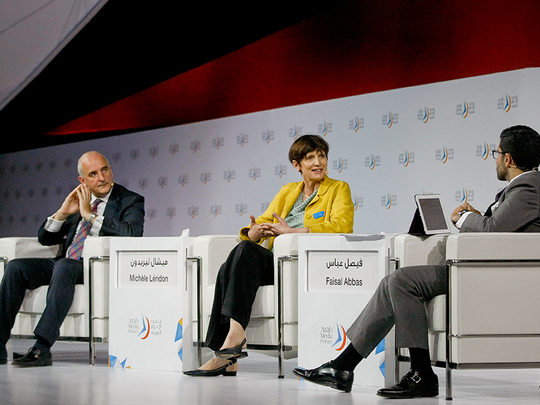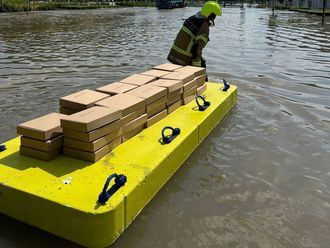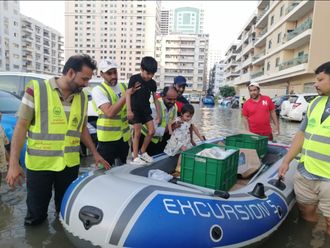
Dubai: A deal with Iran on its nuclear programme would not undermine Gulf security, the Arab Media Forum heard on Wednesday in Dubai.
The West and Gulf countries are suspicious of Iran’s nuclear ambition, which it says is peaceful. The issue will feature at the upcoming Camp David meeting in the US.
Speaking at the forum, Roger Cohen, Op-Ed Columnist, The New York Times, said he supported US diplomacy of striking an agreement in principle with Iran to place conditions on the programme.
However, a number of Gulf leaders will not attend the Camp David meeting. The regional and international press is speculating the reason is because the Arab states feel the policy is too soft on Iran.
Iran is accused of meddling in Gulf nations’ affairs and backing anti-government rebels in Yemen.
“I’m aware of the scepticism in this part of the world. But we shouldn’t allow the perfect to be the enemy of the good,” Cohen said.
He was a panellist at the forum’s afternoon session titled ‘The Outlook for the Arab World from the Perspective of International Media’.
Cohen said the deal, which many expect will be clinched in writing, would put a “barrier” around any Iranian plan to build a nuclear weapon — at least for the next “10 to 15 years”.
“I ask the countries in this region: do they prefer a nuclear-armed Iran or an Iran that hasn’t reached that point — what’s better for them?”
He added that during his visits he found Iran to be a “hopeful society” that has voices of moderation.
Cohen said there were perhaps 400,000 Iranians in Dubai and the UAE. “Are they a threat to you, or a boon to your economy? I think they’re a boon.”
Session moderator Faisal Abbas, Editor in Chief, Al Arabiya.net English, said GCC countries “might have a problem” if sanctions are lifted from Iran. That could, Abbas speculated, help Iran “finance radical groups interfering with countries in the region”.
Abbas also asked whether a reduced US military presence — possibly following the deal — could mean less security for the Gulf.
Cohen said he believed America, through the Camp David meeting, wants to show Gulf allies “it can make a deal with Iran and at the same time reassure [allies] through defence pacts, weapons [sales] that the US isn’t turning its back on countries in the region”.
Another topic of discussion was the extremist group Daesh, also called Islamic State, that controls parts of Syria and Iraq.
Michele Leridon, Global News Director, Agence France Presse (AFP), said her organisation decided not to call it Islamic State “because it is not a state and it does not represent Islam”.
She said: “If you hear ‘Islamic State’ on the radio every day [in the West], you can imagine that someone who doesn’t know the situation well may think it’s a state. Yes, we think it’s our [AFP’s] responsibility to explain what is happening in the Middle East.
“We thought it was important to effectively specify that it was an organisation, not a state, and not the resume of what an Islamic state is.”












